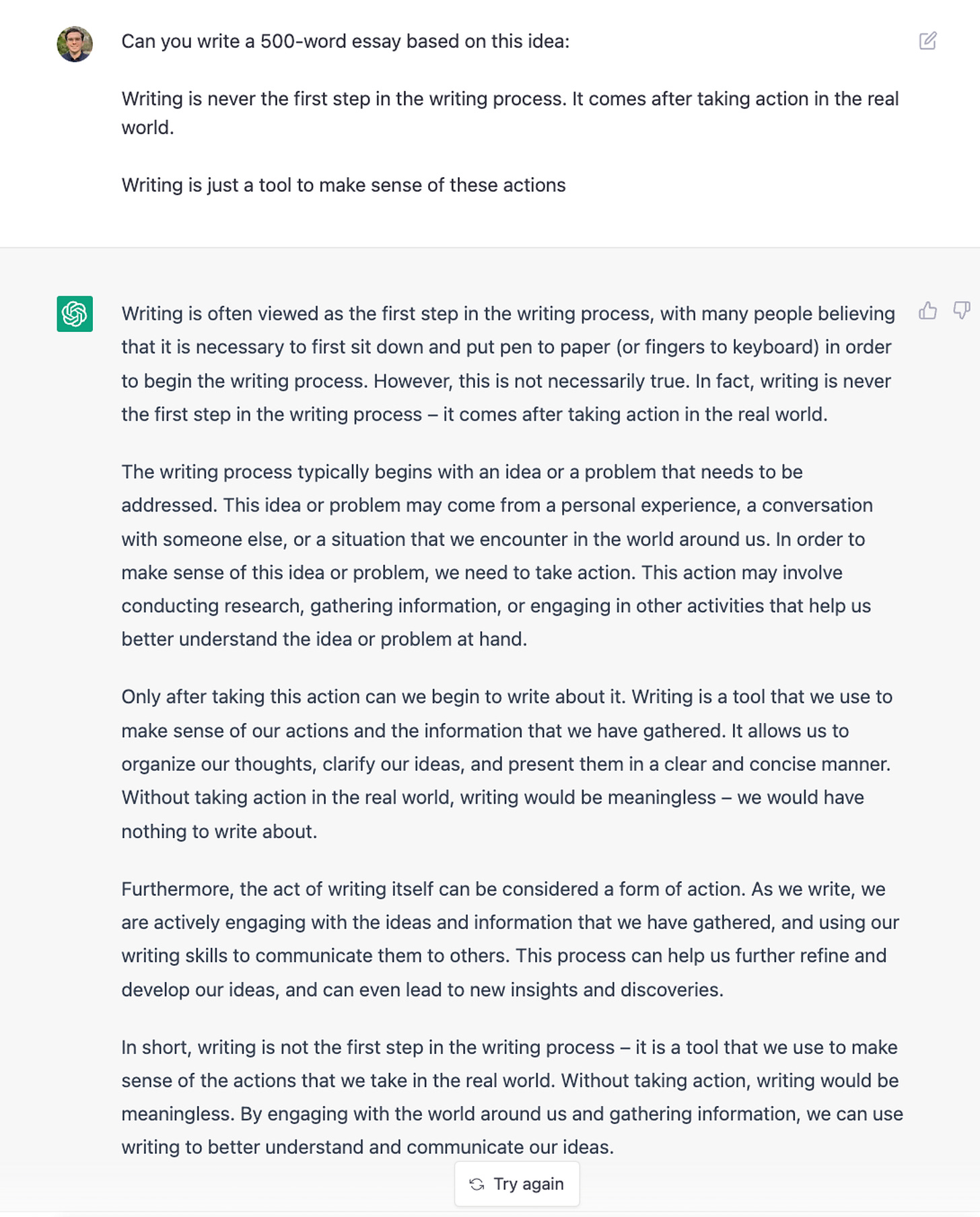Writing on the internet allows you to share your interests and skills with a global audience. And by publicly sharing your writing online, you create the potential to connect with like-minded people and generate new opportunities.
Action is a critical first step in creating valuable (and interesting) writing that facilitates these goals.
Exploring, building, conversing, or experimenting in the real world provides you with a unique perspective needed to create great writing. As Brian Armstrong (the founder of Coinbase) says, “Action produces information.”
And this information leads to insights, stories, and lessons that can help you write with a unique perspective.
I summarize this idea with a tweet:

AI’s impact on writing makes action even more important
The rise of AI writing tools is revealing a scary fact — generic writing is becoming commoditized.
So what’s the best way to avoid generic, commoditized writing? Naval Ravikant gives us a clue with his quote, “No one can compete with you on being you.”
The best way to not produce commoditized writing is to be authentically you. Through action, you can create information that is unique to your own life experience.

Here’s an example to illustrate this point. I copied my above tweet into ChatGPT to expand on the idea.
Give the response a quick skim — it’s good (scary good).
I probably could have copied the generated text into Substack and been happy with the essay. However, writing will be valuable and interesting the more it reflects actions and experiences unique to the writer.
So, as a meta-demonstration, this post shows my action of experimenting in the real world with ChatGPT and producing the above example. By running an experiment with ChatGPT, I was able to create a new perspective in addition to the broader idea of the importance of action.
In Summary
To avoid commoditized, generic writing, focus on taking action in the real world. Focus on being authentically yourself. Focus your writing on actions that you have taken that produce unique information.
Use writing as a tool to interpret these experiences and share the learning. And through your writing, you can build connections, support, and opportunities.



